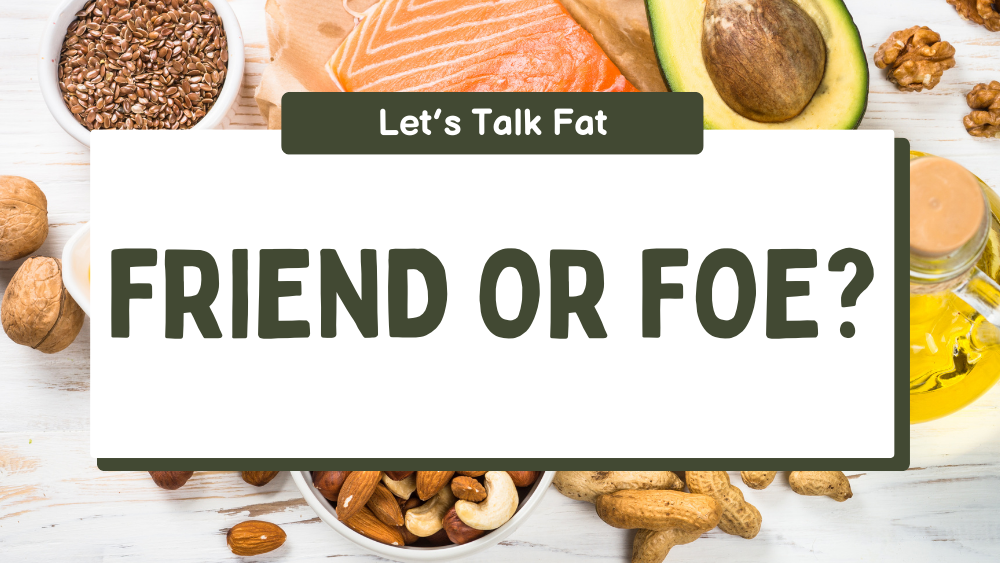For a long time, fat was unfairly blamed for a range of health issues, leading to the rise of the "low-fat" craze. This approach, once thought to be the key to better heart health and weight control, has since been proven more harmful than helpful.
The truth is, our bodies need fat to function at their best. While excessive intake of the wrong types of fat can raise cholesterol, trigger inflammation, and compromise overall health, the right kinds of fats are vital for energy, hormone production, brain health, and much more.
So, how do we know which fats to eat and which to skip? Let’s break them down:
The Four Types of Fats Found in Food
1. Monounsaturated Fats
These fats remain liquid at room temperature and firm up when chilled. Found in olive oil, avocado oil, and most nut and seed oils, monounsaturated fats support heart health, balance cholesterol levels, reduce inflammation, and may even help with blood sugar control and belly fat reduction. They're a smart staple to have in your kitchen.
2. Polyunsaturated Fats
These fats come with a catch. Naturally occurring polyunsaturated fats—like those in salmon, sardines, flaxseeds, chia seeds, walnuts, and hemp seeds—can be incredibly beneficial. They help reduce inflammation and support heart health. However, when these fats are highly processed (as in canola, soybean, safflower, or generic "vegetable oil"), they lose their benefits and can actually fuel inflammation. Stick to natural, unrefined sources and avoid the industrial versions.
3. Trans Fats
This is the fat to steer clear of completely. Trans fats are artificially created by hydrogenating vegetable oil to extend shelf life. Unfortunately, this process makes them highly inflammatory and harmful. They lower your good cholesterol (HDL) while raising your bad cholesterol (LDL), which increases your risk of heart disease. You’ll often find them in fried foods, baked goods, margarine, and packaged snacks. Always check food labels for terms like partially hydrogenated oils, shortening, or hydrogenated vegetable oil—these are red flags.
4. Saturated Fats
Often misunderstood, saturated fats are solid at room temperature. Found in foods like coconut oil, ghee, meat, and eggs, they can support immune function, hormone production, and brain health when consumed in moderation and from quality sources. They also contribute to raising HDL (good cholesterol).
Even with the healthier fats, quality matters. Always aim for clean, minimally processed sources, and incorporate them as part of a well-balanced diet.
Another important factor? How you use your fats. Heating oil past its smoke point causes it to break down and form harmful compounds. To avoid this:
- For high-heat cooking (like frying or sautéing), choose stable oils like avocado oil, coconut oil.
- For roasting and baking (medium to high heat), olive oil and peanut oil work well.
- For dressings or finishing touches, use delicate oils like flaxseed, walnut, sesame, or macadamia oil.
Hopefully, this helped demystify some of the confusion around dietary fats. The key takeaway: fat isn’t the enemy—it’s an ally when chosen and used wisely.

